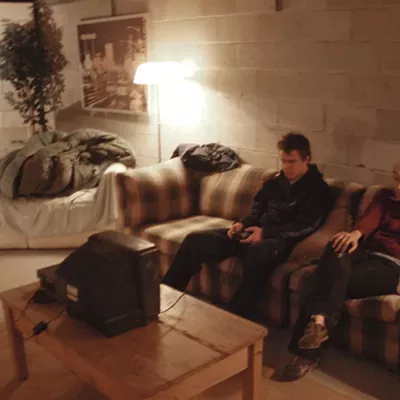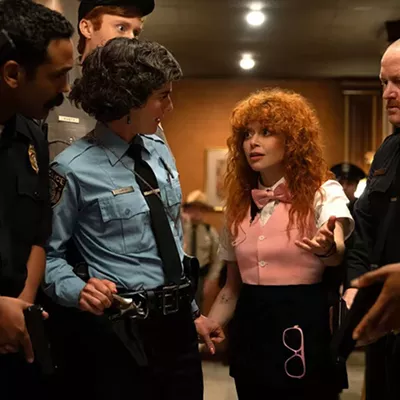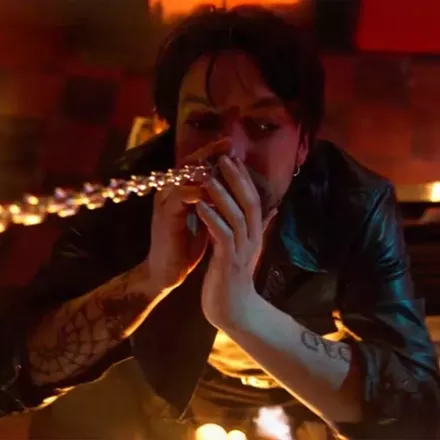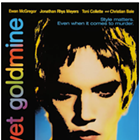Usually when the term "gritty urban drama" is brought up, you would think of something featuring Ice Cube or Mario Van Peebles. In fact, Crash (no relation to the 1996 David Cronenberg film), does have a couple of performances that would easily fit in with any number of lesser inner-city films: Larenz Tate and rapper Ludacris play carjackers who cause some mayhem in the nighttime streets of Los Angeles.
But this is not your typical "gritty urban drama." Co-written and directed -- his debut -- by Paul Haggis, who was Oscar-nominated last year for Million Dollar Baby, this is a serious adult drama, with a series of stories about denizens of contemporary Los Angeles whose lives sometimes cross paths, sometimes intermingle with each other's, sometimes emotionally "crash" into one another.
The film features a cast of actors who have certainly done great work before, but here seem to rise to a higher level for the occasion, grabbing hold of their roles and practically reinventing their approach to acting. Matt Dillon plays a racist bad cop who has no idea that he's either racist or anything but a good cop. Sandra Bullock shakes off any semblance of any character she's ever played and startlingly takes the form of a bitchy, spoiled, well-to-do woman who feels above everyone she knows. Thandie Newton -- an exception in the previous good work category -- gives a solid performance as an angry woman who feels the world is violating her. Don Cheadle ... well, Don Cheadle just continues in his amazing acting ways, here as a cop simply fighting the good fight. There are many more -- Ludacris is a movie-stealing standout -- and lots of people in Crash are as angry as Bullock's character or as racist as Dillon's.
This is a movie about how white people don't trust black people and about how black people hate them because of it. It's about Arab-Americans who are too Old School to get with the times and are convinced that everyone -- black and white -- is against them. For them, the only way to deal with those feelings -- whether or not they're real -- is self-protective violence.
But in the carefully crafted screenplay, all of the above is only what these people are about on the outside. There are multiple feelings and experiences going on underneath that are slowly revealed as the film plays out, giving their actions some semblance of sense. That's certainly not to say that they're right in the way they carry out their lives -- all filled with pent-up anger, ever-ready to explode in unspeakable ways. But as each of them is given more exploration, each is also more easily understood.
So by the time the film is maybe halfway over, some of Officer Ryan's (Dillon) horrific behavior during his "routine" questioning of a black couple, while still unforgivable, isn't quite as out-of-the-blue as it was at first. And by the time TV director Cameron (Terrence Dashon Howard) pulls a nutty on carjacker Anthony (Ludacris) during an attempted crime, the deed doesn't take a lot of explaining.
The film is also cleverly crafted, with lots of little hints of things to come. Events both important and innocuous result in scenes of intense power. (A gun shop owner asks a customer, for example, "Are you sure you want those bullets?") result in scenes of intense power. If a sequence in which a cop trying to help a victim out of a car accident doesn't make the hair on your neck stand up, you deserve to be totally bald. A second viewing of Crash is going to be amazing.
Yet in a film filled with violence (most of it off-screen) and pure unadulterated hatred, there's also room for some sweet tenderness, as in the relationship between a locksmith -- a victim of uncontrolled prejudice -- and his little daughter who's afraid even of even the idea of violence. Screenwriters Paul Haggis (who based some of this on his personal experiences) and Robert Moresco make it all flow, getting these various different moods, characters, and situations to mesh. In doing so, they present a picture of contemporary L.A. that most likely won't sit well with the city's Chamber of Commerce, but will attract and dazzle audiences who are craving a slice of cinema that challenges even as it mesmerizes.
Some will say that the series of coincidences within the stories are a but much to take, but the plot holes don't undermine the film's impact. This is a movie experience that will send viewers out into the world with thoughts of bettering their own lives, of trying to be more humane to others. Because Crash isn't really about any characters up on the screen. It's really about all of us.
















